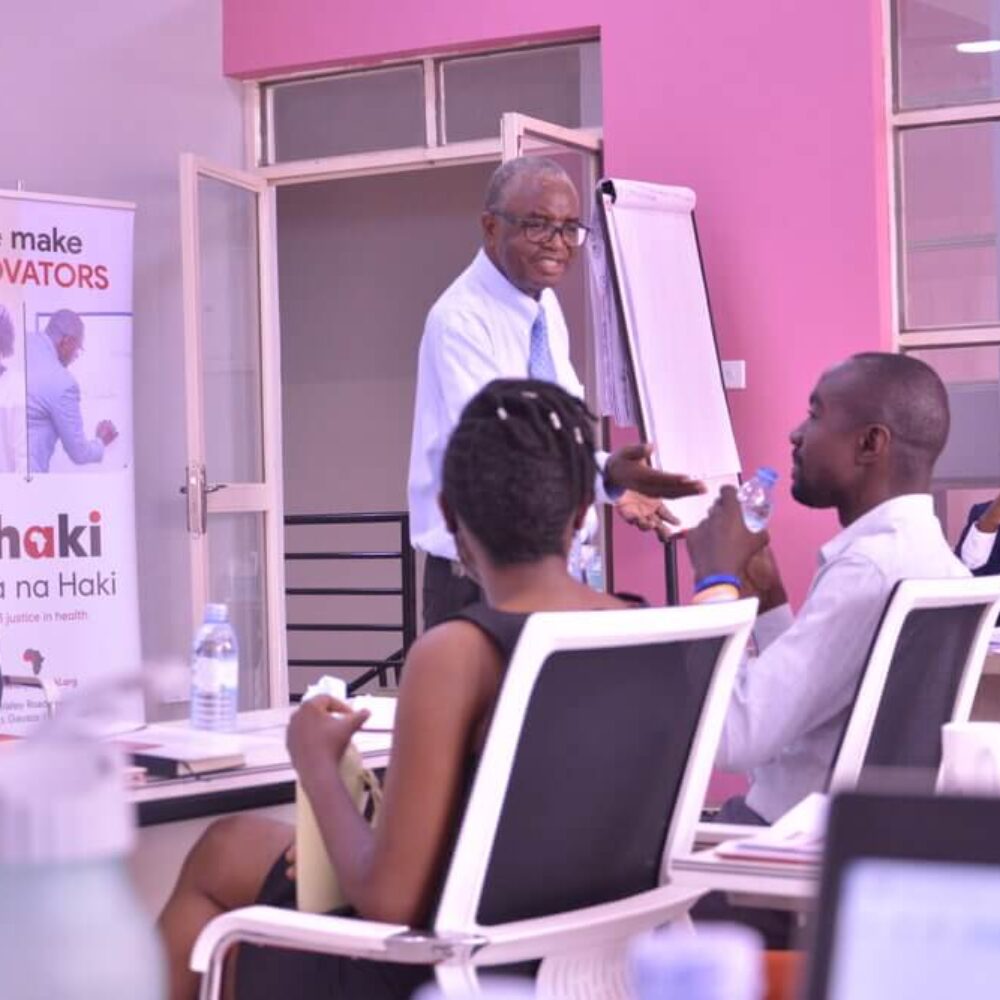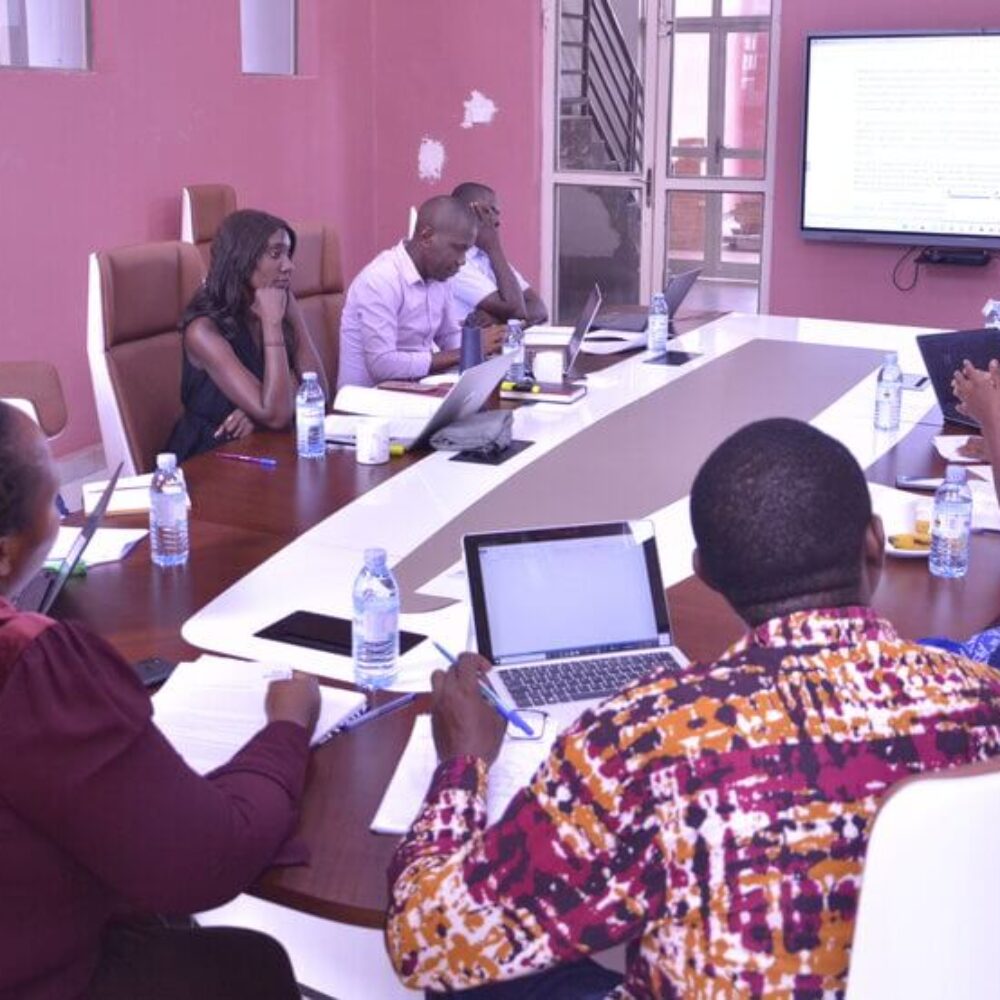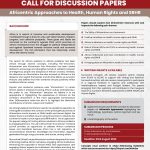The Legacy of Justice David Majanja in Promoting Africentrism in Human Rights
Obituary
A Tribute to the Late Hon. Justice David Amilcar Shikomera Majanja
Introduction
We were deeply saddened by the passing of Hon. Justice David Amilcar Shikomera Majanja on Wednesday, July 10th, 2024; May His Soul Rest in Peace. We celebrate his legacy by reflecting on his contribution to Africentrism through his progressive human rights jurisprudence on the continent. His legacy is marked by a strong commitment to pursuing justice through public interest litigation and playing a leading role in transformative jurisprudence, which has significantly impacted human rights in Kenya and across Africa. Justice Majanja will always be remembered for championing the principles of constitutionalism, including human dignity, equity, social justice, inclusiveness, equality, human rights, protection of the marginalized, good governance, integrity, accountability, rule of law, and sustainable development.
His judicial activism led to numerous court decisions that embodied these principles, and it’s only crucial to recognize and honour his contributions, even in his absence. His decisions demonstrate a golden thread of empathy, integrity, appreciation of the African issues and compassion for humanity the core of Africentrism which inter alia requires amplification of positive African narratives, agency where African individuals provide evidence-based contextualized solutions to the challenges on the continent. In this tribute, we emphasize some of his judicial decisions, particularly his interpretation and advancement of international human rights law in the African context- most importantly for the benefit of the African individual. While he came up with hundreds of judicial decisions, the limitations of this tribute only permit mention of a few of them.
Discussion
Justice Majanja contributed to social economic rights in several decisions such as Mathew Okwanda v Minister of Health and Medical Services & 3 others1, where he showed his wariness of African governments disguised in a ‘progressive realisation’ mask to deny citizens the enjoyment of social and economic rights including the right to health. He remarked inter alia that even where the social economic rights including the right to health were to be progressively achieved, the state had an obligation to show that at least it had taken some concrete measures or was taking conscious steps to actualize and protect the rights in question.
His ruling in Hon Attorney General v Kenya National Union of Nurses & 5 others2, an application which sought to restrain the pending industrial strike by the nurses until the adjudication of the main case demonstrates Justice Majanja’s conviction on the right to health. He went out of his way to ensure that there was a balance between Kenyan health professionals’ asks and the citizens’ right to health that would be affected. He noted, “I note that this matter was filed and brought to my attention at about 5.45 pm today, Wednesday 11th December 2013 and since no judge of the Industrial Court was sitting, and given the urgency of the matter and in the interests of justice I dealt with the matter.”3
Justice Majanja contributed to the protection of children’s rights which can be seen in the case of RWT (suing As Next Friend of BGN – A Minor) v SNS School 4, where he faulted a school for violating the principles of natural justice when it expelled a student from school without allowing the student or his parent to be heard. He added that expulsion or suspension of a child from school may negatively affect him, particularly in a situation where he had only one year to finalize high school and would be contrary to the best interest principle. This not only demonstrates his beliefs in the principles of natural justice but also the need for a critical foresight when making administrative decisions that may impact the rights of an African child.
It is also important to reflect on Justice Majanja’s compassion for humanity and African of diversity as a virtue. He upheld the rights to equality, human dignity and freedom from discrimination for instance in kipngetich Maiyo & 24 Others v Kenya Land Commission Selection Panel5 where the petitioners sought a declaration that ‘their right to human dignity as Kenyans of Kalenjin Ethnic descents had been violated by the nomination of a disabled person to represent them in the National Land Commission.” Justice Majanja dismissed the petition with dismay holding that it was contrary to the letter and spirit of the Constitution which according to its preamble, emphasizes that the people of Kenya are proud of their diversity and recognizes the aspiration of all Kenyans to the essential values of human rights, equality, freedom, democracy, social justice and the rule of law.6
In addition, Justice Majanja lived with the values of Africanness7 such as Ubuntu (I am because we are) and he will also be remembered for standing for the rights of minority communities’ persons with disabilities in Anupa & another v Attorney General & Another.8 In Kituo Cha Sheria & 8 others v Attorney General 9 where he quashed the government directive to relocate refugees living in urban areas to refugee camps was a threat to petitioners’ fundamental rights and freedoms reasoning that it was violating the freedom of movement and right to human dignity not justifiable under the Constitution of Kenya, 2010. These cases signify that some individuals would not be othered his watch and he would not hesitate to remind us that communitarianism values are at the heart of our African cultures.
Justice Manjanja also contributed principles of public participation and the nature of public consultation in enacting statutes. Moses Munyendo & 908 others v Attorney General & another, 10 where he belaboured to define the principles of public participation in the law-making process, stressing that Bills must be advertised and go through various Committees of the National Assembly which admit public hearings and submission of memoranda before they are passed by Parliament.
Conclusion
The late Hon. Justice David Amilcar Shikomera Majanja made exceptional contributions to legal thought, constitutionalism, and progressive human rights jurisprudence. His work has made present and future proponents of human rights in East Africa, Africa, and the world proud. Justice Majanja’s exemplification of the Africentrism Approach, which emphasizes the contribution of African individuals to the contextual understanding of Africa’s challenges and centres the African individual in their unique and diverse experiences, is remarkable. While he is deeply missed by his family, colleagues, mentees, and Africa as a whole, we find solace in knowing that his legacy lives on. A link to Justice Majanja’s court decisions – http://kenyalaw.org/caselaw/cases/advanced_search/
Cite as: Moses Mulumba, Frank Ssekamwa & Leni Sharon Pamela: The Legacy of Justice David Majanja in Promoting Africentrism in Human Rights. Afya na Haki, July 2024.
1Mathew Okwanda v Minister of Health and Medical Services & 3 others [2013] eKLR
2Hon Attorney General v Kenya National Union of Nurses & 5 others [2013] eKLR
3ibid
4RWT (suing As Next Friend of BGN – A Minor) V SNS School (Petition 290 Of 2012) [2012] KEHC [5408] (KLR) (Constitutional and Human Rights Division)
5kipngetich Maiyo & 24 Others V Kenya Land Commission Selection Panel [2012] eKLR
6Ibid
7See Ngwena C. What is Africanness? Contesting nativism in race, culture and sexualities Pretoria University Law Press 2018. https://www.pulp.up.ac.za/monographs/what-is-africanness-contesting-nativism-in-race-culture-and-sexualities
8Anupa & another v Attorney General & another (Petition 93 of 2011) [2012] KEHC 1081 (KLR) (Election Petitions) (7 November 2012).
9Kituo Cha Sheria & 8 others v Attorney General [2013] eKLR
10Moses Munyendo & 908 others v Attorney General & another [2013] eKLR







